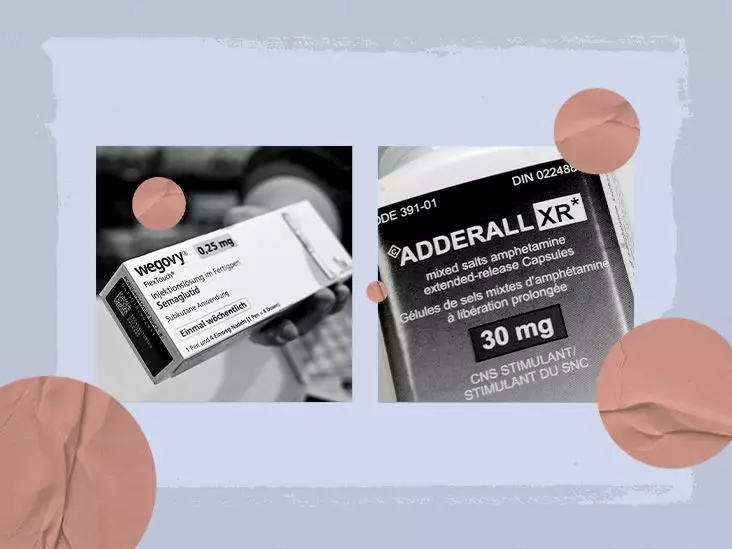The relationship between different medications can often be a source of confusion and concern for patients. In this context, Wegovy, a medication primarily designed for weight management, and Adderall, commonly prescribed for attention deficit hyperactivity disorder (ADHD), are often procured simultaneously. Both drugs come with their particular set of effects, benefits, and potential side effects, inducing the question: do they interact with one another? This article will critically assess the information surrounding the concurrent use of Wegovy and Adderall, aiming to provide a clear and comprehensible perspective for individuals considering this combination.
Wegovy operates by mimicking the effects of the GLP-1 hormone, which regulates appetite and glucose metabolism. By doing so, it aids in weight reduction by delaying gastric emptying and enhancing feelings of fullness. Conversely, Adderall is a central nervous system (CNS) stimulant, primarily used to increase concentration and minimize impulsivity in individuals with ADHD. Its effects manifest through the increased levels of neurotransmitters, particularly dopamine and norepinephrine, enhancing alertness and focus.
Given their differing mechanisms, one could surmise that they would not directly affect each other’s efficacy. However, it is crucial to understand that the body’s absorption of oral medications can sometimes be altered. Therefore, even in the absence of direct interaction, the concurrent utilization of Wegovy and Adderall warrants caution, particularly regarding how the body processes these medications.
While research has not explicitly documented adverse interactions between Wegovy and Adderall, the possibility remains that Wegovy could influence how the body absorbs oral medications. Specifically, because Wegovy can slow down gastric emptying, it may affect the timing and level of medication absorption, potentially leading to changes in effectiveness or prevalence of side effects.
Importantly, while Wegovy has not been shown to affect the absorption of Adderall in clinical trials, patients should remain vigilant. Any noticeable changes in how each medication manifests its effects should prompt a discussion with a healthcare provider. This precautionary approach ensures that individuals using these medications are closely monitored, particularly concerning their mental health and nutritional status.
Both Wegovy and Adderall share certain side effects, including diminished appetite. For individuals already grappling with attention-related issues, the compounded effect of reduced appetite can exacerbate feelings of fatigue or distraction. Monitoring dietary intake becomes crucial in this context, as insufficient nutrient consumption could lead to unforeseen health complications.
Moreover, excessive weight loss, especially if it occurs rapidly, can lead to negative health implications such as gallstones and nutritional deficiencies. Hence, while Wegovy’s intention is to promote weight loss, maintaining a healthy relationship with food is essential for individuals concurrently managing ADHD symptoms with Adderall.
When combining medication regimens, it is paramount that patients engage in open communication with healthcare providers. This practice allows for a thorough evaluation of all medications, supplements, or vitamins being taken. Healthcare professionals can provide tailored advice and adjust dosages accordingly, ensuring that the balance between treatment efficacy and the risk of side effects is maintained.
Patients should not hesitate to discuss any concerns regarding their medication regimens, especially when introducing a new drug. By fostering an environment of transparency, patients can ensure that they receive comprehensive care tailored to their unique needs.
The potential for Wegovy and Adderall to coexist without significant adverse interactions provides a certain comfort to individuals relying on both for diverse health concerns. However, a cautious approach is warranted, primarily due to the shared side effects and possible implications on drug absorption. Ultimately, ongoing discussions with healthcare providers, alongside vigilant monitoring of physical and psychological health, are essential for safe and effective management of treatment plans involving these medications.

